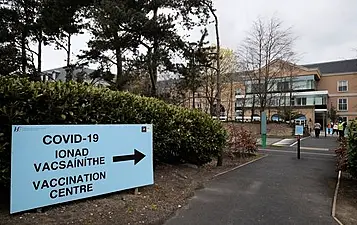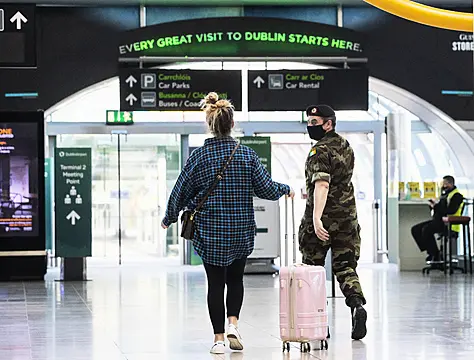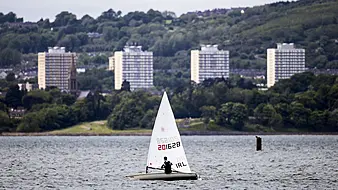Minister of State Ossian Smyth has said that the HSE will not be providing free digital travel certificates for people who are not vaccinated.
Anyone who is not vaccinated who wants to make a non-essential journey after July 19th will have to get a private laboratory test to get the digital certificate, he told RTÉ radio’s Today with Claire Byrne show.
The HSE’s focus is on public health and on tests to isolate the virus, so they will not be using resources to provide test results for people wishing to travel, he said.
This was not a “nefarious” plot by the Government to dissuade people from travelling, he said.
Travel certs
Mr Smyth said he was confident that the system will be easy to access and easy to use when it is introduced. There will be three types of cert — proof that one has had Covid; proof that one is fully vaccinated and proof of a negative test result in the previous three days.
However, the Minister cautioned that it was not guaranteed that the restriction on non-essential travel would be lifted on July 19th. That would depend on the level of cases and the rollout of the vaccination programme, he said.
The digital certificate system had been developed in conjunction with the European Commission and has been tested on HSE staff, he explained.
Irish citizens can get the digital cert wherever they have been vaccinated, he said. Brexit had complicated the situation, but there were ongoing talks about getting the Common Travel area re-established and the UK was working on a system similar and compatible to the European digital certificate.
Mr Smyth also pointed out that a person did not require a PCR test to leave the country, but it could be required to enter another country and would be required on return to Ireland.
'Stuck' abroad
There was an element of risk with non-essential travel at present he said, there was no guarantee that a person would not “get stuck” if they contracted the virus when abroad.

The Minister also cautioned that there was no guarantee that restrictions on indoor facilities would be eased on July 5th. The Government had been very cautious, and it was important to “get the balance right” and the situation was under constant review.
Any words of caution (from the medical and scientific communities) about the situation “should be heeded.”
The impact of the recent cyberattack on the HSE was ongoing, he said with only half of the HSE’s system back online. “It’s a huge job.”
It had been “absolutely devastating” and the focus on the HSE was now to make the system “much safer.”







